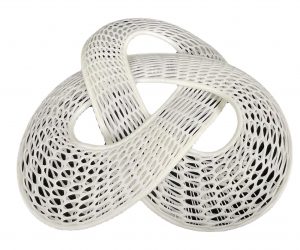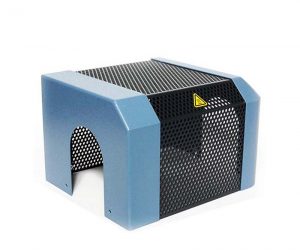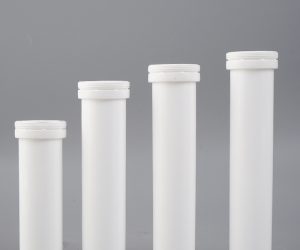Dive into the fascinating realm of plastic mold manufacturers, where cutting-edge design meets innovative manufacturing to shape products that define our modern lives.
Introduction to Plastic Molds Manufacturers
Historical Overview: Molding the Twentieth Century
The tale of plastic mold manufacturers is intricately intertwined with the story of the twentieth century. As the industrial revolution ushered in a new era of mass production, there was a growing need for efficient and consistent manufacturing techniques. This gave rise to the plastic mold industry. From early pioneers experimenting with new materials and molding processes to today's innovators pushing technological boundaries, the history of plastic molds showcases human ingenuity and resilience.
Evolution of Molds in the Industrial Revolution
The industrial revolution marked a turning point for plastic molds. Factories started churning out a vast array of consumer goods, making reliable and cost-effective manufacturing methods essential. The advent of injection molding in the late 19th century transformed the production of plastic parts, enabling mass production of everything from household items to automotive components.
Today's Manufacturers: Leaders in Innovation
Today, the plastic mold manufacturing industry stands at the forefront of technological innovation, driven by a relentless pursuit of precision, efficiency, and sustainability. By leveraging advanced design tools, cutting-edge manufacturing techniques, and data-driven optimization, these modern pioneers are shaping the future of plastic products. They deliver exceptional quality and performance across various industries, from consumer electronics to medical devices.
The Art and Science of Mold Design
Design Philosophies and Considerations
Creating the perfect plastic mold requires a delicate balance of art and science. Designers must consider numerous factors, from material properties and part geometry to manufacturing constraints and production requirements. A holistic design philosophy that emphasizes functionality, efficiency, and aesthetics allows manufacturers to create remarkable products that meet evolving client needs.
Role of Computer-Aided Design (CAD)
In today’s plastic mold design, Computer-Aided Design (CAD) software is indispensable. These advanced digital platforms enable designers to model, simulate, and optimize intricate mold components, ensuring a smooth transition from concept to production. Using CAD helps identify and address potential issues early, enhancing mold performance while reducing development time and costs.
Importance of Ergonomics in Mold Design
Ergonomics play a crucial role in plastic mold design. The comfort and safety of operators handling these tools directly impact manufacturing efficiency and quality. Designers must incorporate ergonomic principles, promoting ease of use, reducing physical strain, and improving overall user experience. This approach benefits workers and boosts productivity and competitiveness in manufacturing operations.
Core Technologies in Mold Manufacturing
Materials Science: The Backbone of Quality Molds
At the core of the plastic mold manufacturing industry lies a deep understanding of materials science. Mold makers carefully select and engineer materials to ensure strength, durability, and thermal properties necessary for the manufacturing process. Whether using advanced steel alloys or cutting-edge polymer composites, material choice is critical for mold performance and longevity.
Precision Engineering and Manufacturing Techniques
Precision engineering and advanced manufacturing techniques are fundamental to the plastic molds industry. Manufacturers have mastered computer numerical control (CNC) machining, using state-of-the-art tools and software to fabricate intricate mold components with unparalleled accuracy and efficiency. Additive manufacturing, such as 3D printing, further expands capabilities, enabling rapid prototyping and customization of mold designs.
Automation: Streamlining the Manufacturing Process
Automation and robotics have become integral to plastic mold manufacturing, revolutionizing production approaches. Incorporating automated systems and intelligent technologies streamlines workflows, enhances product consistency, and improves overall efficiency. From automated material handling and part inspection to predictive maintenance and real-time process monitoring, automation allows manufacturers to stay ahead, delivering high-quality molds on an unprecedented scale.
From Concept to Reality: The Manufacturing Process
Prototype Development and Testing
The journey from idea to finished product in the plastic molds industry is a detailed and iterative process. It often starts with developing prototypes. Mold manufacturers use advanced tools like 3D printing and computer simulations to create physical models. These models are thoroughly tested and refined before full-scale production begins. This careful prototyping phase ensures that the final mold design meets the client's specifications and exceeds their expectations in performance and reliability.
Production Methodologies: Injection, Compression, and More
Plastic mold manufacturers use various production methods, each tailored to the specific needs of the product and material. From widely used injection molding to precision-driven compression molding, mold makers have mastered different manufacturing approaches. By continuously refining these methods, manufacturers push the boundaries, delivering innovative solutions that redefine plastic product design.
Quality Assurance: Ensuring Consistency and Reliability
Quality assurance is crucial in the plastic molds industry. Manufacturers implement strict quality control measures using advanced inspection technologies and data-driven strategies. Every step, from raw material selection to the final inspection of molded parts, is meticulously scrutinized to ensure the end result meets or exceeds industry standards.
Applications Across Diverse Markets
Automotive and Transportation Sectors
The plastic molds industry has significantly shaped the automotive and transportation sectors. It provides precision-engineered components that transform how we move. From lightweight, fuel-efficient automotive parts to durable, high-performance components for aerospace, mold manufacturers consistently push the limits, delivering innovative solutions that revolutionize these industries.
Consumer Products and Electronics
The versatility of plastic molds makes them essential in consumer products and electronics industries. They enable the creation of everyday items we rely on. From sleek smartphone cases to intricate electronics housings, mold manufacturers meet the evolving design and functional requirements of these dynamic markets.
Medical Device Manufacturing and Packaging
The plastic molds industry also plays a vital role in medical device and packaging sectors, where precision, sterility, and regulatory compliance are paramount. Mold makers develop specialized techniques and materials to produce biocompatible, high-quality plastic components crucial for life-saving medical devices and secure, tamper-resistant packaging.
Sustainability and Environmental Responsibility
Green Manufacturing Practices
As sustainability becomes increasingly important, the plastic molds industry leads with green manufacturing practices. These include energy-efficient equipment, renewable energy sources, comprehensive waste management, and recycling programs. Mold manufacturers are at the forefront of transitioning to a more sustainable future.
Recycling and Waste Management Strategies
To reduce waste and promote a circular economy, plastic mold manufacturers have developed innovative recycling and waste management strategies. These involve using recycled and biodegradable plastics, designing molds for easy disassembly and component recovery, and creating closed-loop systems that reintegrate production scrap into the manufacturing process. These sustainable practices set new environmental stewardship standards.
Industry Standards and Certifications
The plastic molds industry actively develops and adheres to strict environmental standards and certifications. Collaborating with regulatory bodies and industry organizations, mold manufacturers have established best practices and sustainability benchmarks. These certifications not only demonstrate the industry's commitment to sustainability but also show significant progress in reducing the environmental impact of plastic production.
Customer Engagement and Market Adaptation
Customer Relationship Management in Manufacturing
In the highly competitive world of plastic molds manufacturing, building strong, collaborative relationships with customers is crucial. Mold makers have invested a lot in customer relationship management (CRM) systems and processes. These investments help them understand their clients' needs better, anticipate changes, and deliver solutions that exceed expectations. This focus on the customer drives innovation, fosters long-term partnerships, and establishes the industry as a trusted partner across various sectors.
Adapting to Global Market Changes
The plastic molds industry has shown remarkable flexibility in navigating the ever-changing global market. Manufacturers can quickly adapt to shifts in consumer preferences, regulatory requirements, and technological advancements. Whether it’s responding to the demand for sustainable materials, adopting new manufacturing techniques, or entering emerging markets, this ability to adapt is key to the industry’s ongoing success.
The Role of Branding and Marketing for Manufacturers
As the plastic molds industry has evolved, the importance of branding and marketing has become clearer. Manufacturers now see that they need to not only be technically skilled but also effectively communicate their value to clients and the broader market. Through strategic marketing initiatives, thoughtful branding, and building a strong industry presence, companies can stand out, build trust, and position themselves as leaders.
Frequently Asked Questions (FAQs)
- What are the key benefits of using precision plastic molds? Precision plastic molds offer several advantages:
- Consistent part quality and dimensional accuracy: Engineered molds ensure each part meets strict quality standards, reducing defects and waste.
- Improved manufacturing efficiency: Optimized designs and advanced techniques speed up production, increase yields, and lower costs.
- Design flexibility: Plastic molds allow for complex geometries, intricate features, and custom products to meet diverse demands.
- Material versatility: They can handle a wide range of polymers and composites, producing parts with tailored properties.
- Enhanced product performance: Precision molds create high-performance components for industries like aerospace, automotive, and medical.
- How do advanced manufacturing techniques enhance plastic mold production? The plastic mold industry uses various advanced techniques to improve quality, efficiency, and innovation:
- Computer-Aided Design (CAD) and Computer-Aided Manufacturing (CAM): These tools streamline development through virtual design and simulation.
- 5-axis CNC Machining: These sophisticated machines fabricate complex geometries with high precision.
- Additive Manufacturing (3D Printing): Techniques like 3D printing speed up prototyping and design iteration.
- Automation and Robotics: These systems boost consistency, productivity, and quality control.
- Smart Manufacturing Technologies: Sensors, data analytics, and Industry 4.0 principles enable real-time monitoring, predictive maintenance, and continuous optimization.
- How is the plastic mold industry addressing sustainability and environmental concerns? The industry is actively adopting sustainable practices to reduce its environmental impact:
- Recyclable and Biodegradable Plastics: Exploring recycled, bio-based, and compostable materials to minimize waste.
- Design for Disassembly and Recycling: Prioritizing easy separation and recovery of plastic components for a circular economy.
- Energy-Efficient Manufacturing: Investing in energy-efficient equipment, renewable energy sources, and closed-loop systems to cut carbon footprints.
- Waste Reduction and Recycling: Comprehensive waste management programs reuse and reprocess plastic scrap.
- Collaboration with Regulatory Bodies: Working with policymakers to develop sustainable standards and best practices.
- How is the plastic mold industry adapting to the evolving needs of diverse industries? The plastic mold industry shows its versatility by meeting unique industry demands:
- Automotive and Aerospace: Producing lightweight, high-performance plastic components for fuel efficiency, safety, and sustainability.
- Medical Devices: Collaborating with medical device manufacturers to create sterile, compatible parts that improve patient outcomes.
- Consumer Electronics: Innovating sleek, durable plastic enclosures for electronics.
- Packaging: Supporting sustainable, cost-effective, visually appealing packaging solutions.
- Customization and Personalization: Advanced techniques allow for highly customized parts tailored to individual needs.
- What is the future outlook for the plastic mold industry? The future looks bright for the plastic mold industry, with several trends shaping its evolution:
- Continued Technological Advancements: Ongoing innovations in materials, automation, and smart technologies will further enhance precision, efficiency, and sustainability.
- Shifting Towards Sustainability: A growing focus on eco-friendly practices and materials will drive industry growth.


